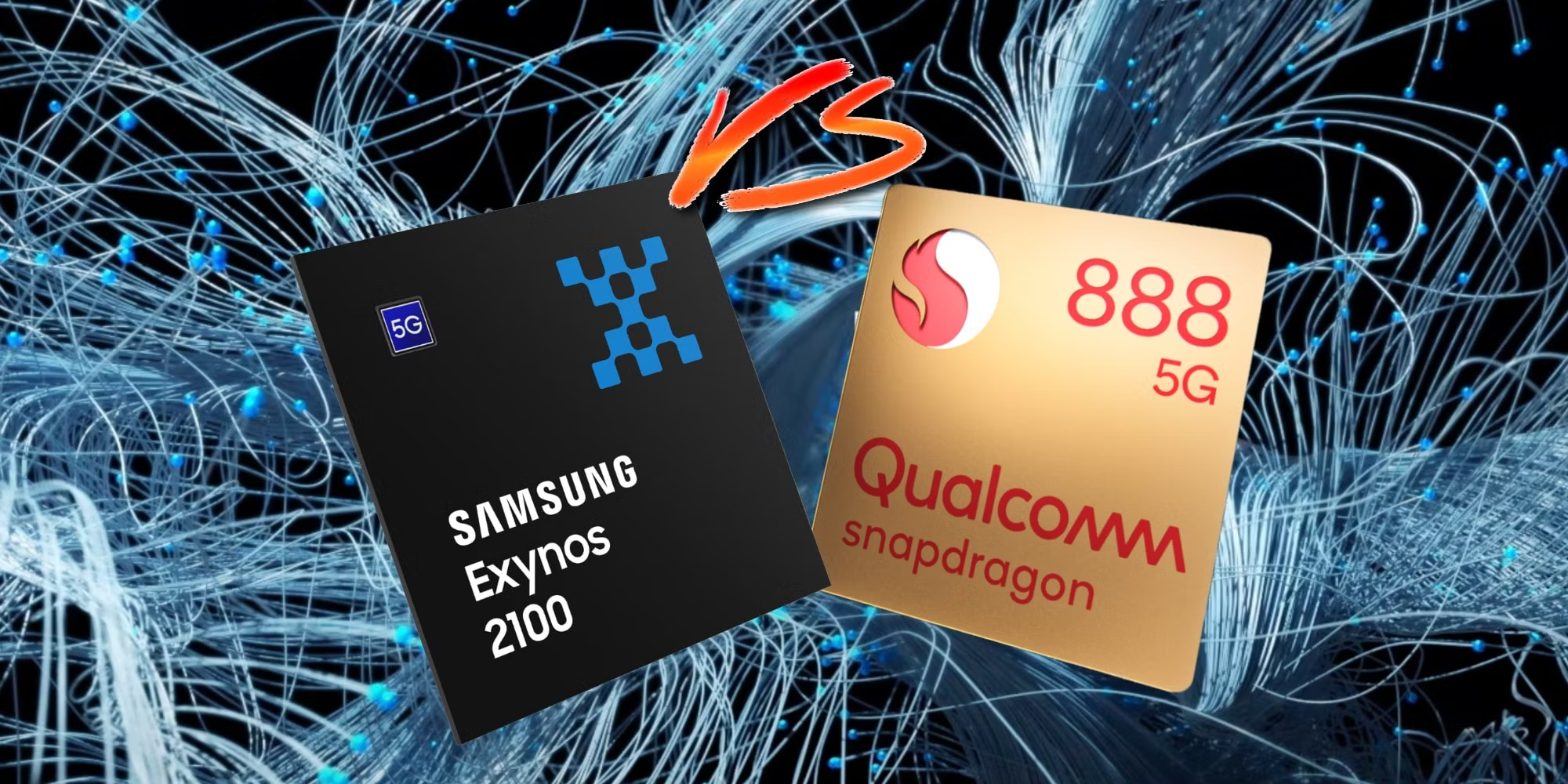Samsung Exynos and Qualcomm Snapdragon

When we talk about Samsung Exynos vs Qualcomm Snapdragon we must start with Samsung Exynos. This is Samsung’s own line of processors used in many of their smartphones. Exynos chips are known for their powerful performance and are designed to work seamlessly with Samsung’s hardware. They combine processing power with efficient energy use helping Samsung phones run smoothly and perform well in various tasks.
Samsung Exynos chipsets come in different models each offering various features and improvements. For instance newer Exynos models come with enhanced artificial intelligence capabilities and better graphics processing. Samsung focuses on integrating these chips with their devices to ensure that users get the best performance and a great experience with their smartphones.
Overview of Qualcomm Snapdragon
On the other hand when comparing Samsung Exynos vs Qualcomm Snapdragon, Qualcomm Snapdragon processors are widely recognized for their versatility and broad use across many smartphone brands. Snapdragon chips are found in phones from different manufacturers, not just Samsung. They are known for their high performance and efficient power usage making them popular in the smartphone market.
Qualcomm Snapdragon processors offer a range of features including excellent graphics performance and strong connectivity options. They are designed to support a variety of applications and services which is why they are used in many devices worldwide. Snapdragon chips are also updated regularly to keep up with new technology trends and user needs.
Performance Benchmarks
When we compare Samsung Exynos vs Qualcomm Snapdragon in terms of CPU performance we look at how well each chipset can handle different tasks. The CPU or Central Processing Unit is like the brain of the phone deciding how quickly and efficiently the phone performs. Both Exynos and Snapdragon chips are designed to be powerful but they use different technologies to achieve high performance.
Samsung Exynos processors often excel in specific tasks like handling complex applications and multitasking. Qualcomm Snapdragon chips however are known for their balanced performance across various tasks making them versatile for everyday use and demanding applications. Both chipsets offer excellent speed but the choice between them can depend on the specific model and how you use your phone.
Multi-Core vs Single-Core Performance
In the debate of Samsung Exynos vs Qualcomm Snapdragon multi-core and single-core performance is crucial. Multi-core performance refers to how well the chipset handles multiple tasks at once while single-core performance focuses on how fast it can complete a single task. Different processors excel in these areas differently.
Samsung Exynos chips often have strong multi-core performance which means they can handle many tasks simultaneously without slowing down. Qualcomm Snapdragon processors might have better single-core performance making them faster for tasks that rely on a single core. Depending on what you need whether it’s multitasking or high-speed single tasks either chipset might suit your needs better.
Graphics and Gaming Performance
When it comes to Samsung Exynos vs Qualcomm Snapdragon GPU or Graphics Processing Unit capabilities are important especially for gaming and media. The GPU is responsible for rendering images, videos and graphics so a powerful GPU means better visuals and smoother gameplay.
Samsung Exynos chipsets often feature advanced GPU technology that enhances visual quality and performance. This is great for high-resolution games and multimedia applications. Qualcomm Snapdragon processors also come with strong GPUs providing excellent graphics performance and supporting a wide range of games and apps. Both chips aim to deliver high-quality visuals but their approaches and technologies can vary.
Gaming Benchmarks and User Experience
In terms of gaming benchmarks Samsung Exynos vs Qualcomm Snapdragon shows different strengths. Gaming benchmarks are tests that measure how well a processor handles games. Exynos chips generally offer smooth performance for gaming with good frame rates and visual quality.
Qualcomm Snapdragon chips are also highly regarded for gaming with many devices featuring Snapdragon processors known for their excellent gaming performance. The user experience can vary depending on the specific model and device but both Exynos and Snapdragon processors are designed to provide a satisfying gaming experience with minimal lag.
Power Efficiency and Battery Life
In the Samsung Exynos vs Qualcomm Snapdragon debate power efficiency is a significant factor. Power consumption metrics show how much energy a chipset uses while performing tasks. Efficient power usage means longer battery life for your phone which is crucial for daily use.
Samsung Exynos processors are designed with power-saving features to help extend battery life. They often include technologies that reduce energy consumption during less demanding tasks. Qualcomm Snapdragon processors also focus on efficiency with features that adjust power use based on the task at hand. Both chipsets strive to offer good battery performance but their efficiency can vary based on the specific model and phone.
Impact on Battery Longevity
When we look at the impact of Samsung Exynos vs Qualcomm Snapdragon on battery longevity we consider how long your phone’s battery lasts on a single charge. Both Exynos and Snapdragon chipsets are designed to optimize battery life but their effectiveness can differ.
Exynos chipsets may offer longer battery life in certain scenarios due to their advanced power-saving technologies. Snapdragon processors also contribute to good battery performance with features that help manage power usage effectively. Ultimately the battery life of your phone will depend on the combination of the chipset battery capacity and how you use your device.
Integration with Device Features
In the discussion of Samsung Exynos vs Qualcomm Snapdragon camera and AI capabilities are crucial. Both chipsets include advanced features to enhance your phone’s camera performance and support artificial intelligence tasks.
Samsung Exynos processors often come with built-in features that improve camera quality such as better image processing and enhanced low-light performance. They also support various AI functions that can make your camera smarter. Qualcomm Snapdragon processors also offer strong camera capabilities with advanced AI features that help in photo and video quality. Both chipsets aim to provide excellent imaging experiences but their technologies and results may vary.
Connectivity and 5G Support
Connectivity is another important aspect when comparing Samsung Exynos vs Qualcomm Snapdragon. Both chipsets support modern connectivity standards including 5G which allows for faster internet speeds and better network performance.
Samsung Exynos processors are designed to offer robust connectivity features including support for 5G networks. Qualcomm Snapdragon chips are also known for their strong connectivity options with many models featuring advanced 5G support. The choice between Exynos and Snapdragon might come down to specific features or network compatibility based on your region.
Conclusion
In the debate of Samsung Exynos vs Qualcomm Snapdragon each chipset has its unique strengths and features. Samsung Exynos processors are known for their integration with Samsung’s hardware and advanced capabilities while Qualcomm Snapdragon chips are praised for their versatility and wide use across different brands.
Key differences include performance benchmarks, graphics capabilities and power efficiency. Exynos might excel in specific tasks while Snapdragon offers a well-rounded performance. Understanding these differences can help you choose the right processor based on your preferences and needs.







